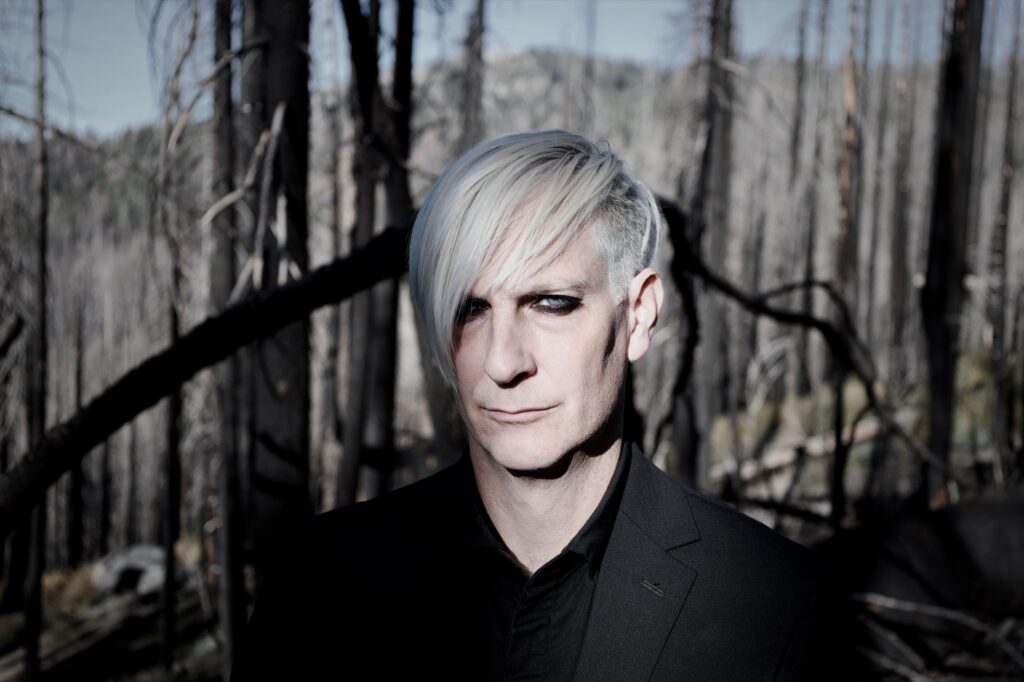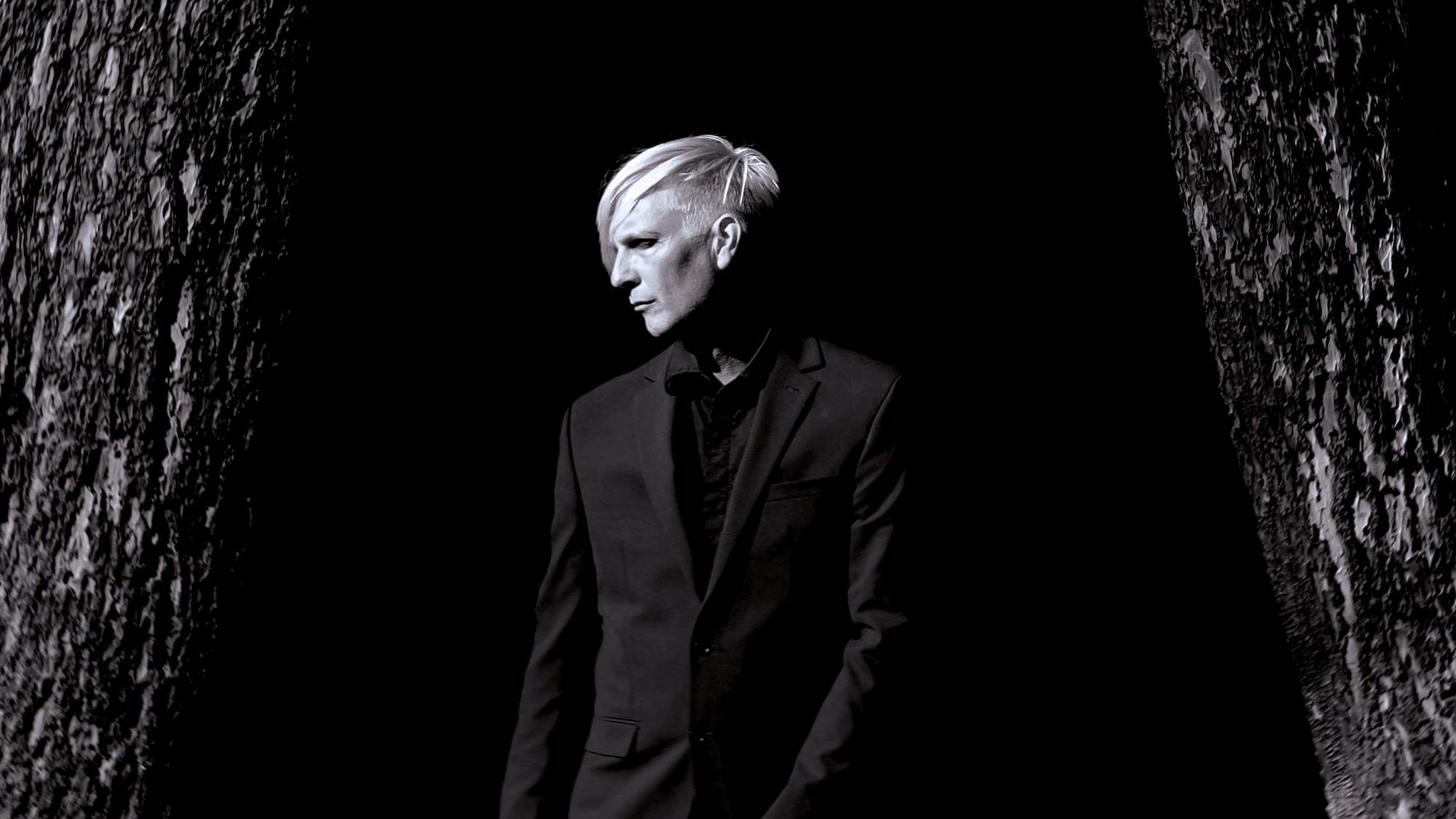For some people, music has always had an intrinsic part in their upbringing, but the Canadian musician and producer Pete Mills feels that it dictated his life’s trajectory. “Growing up, really early on in life, I found a lot of dissatisfaction with things,” Pete tells Post-Burnout.
“I think, intuitively, as a kid, growing up, I was attuned to the disfunction of what I perceived to be called the world. So, when I found music, it was my salvation, and it’s literally that dramatic for me, because, without it, I think I would probably be locked up or dead. Literally. And I’m not exaggerating that.”
At age 14, Pete bought a guitar to beat the malaise of his day-to-day. “Coming into playing an instrument was a whole different experience because it was impressed upon me from my parents to do something with your life, right? [Laughs] Other than nothing. Playing with LEGOs was my only enjoyment, and Transformers.
“So, it was a thing where if I was told to do it, I didn’t want to do it, rebelliously, so I joined a punk band when I decided for myself that I wanted to play an instrument. And I had no idea after two weeks of owning it [his guitar] that I would join a band, but that’s how I came into collaboration, rehearsals, jamming, and all that stuff.”
This band was the Vancouver punk unit Flash Bastard, who, through the ‘90s, built up a strong presence in the B.C. music scene and eventually got signed to Mötley Crüe’s bassist Nikki Sixx’s record label, Americoma.
In 1999, Flash Bastard supported Mötley Crüe and Scorpions on a North American arena tour, which kind of sealed their fate. “After one-and-a-half months of being on that tour, there was so much dysfunction and so much excessive alcohol imbibing, that we got kicked off of that tour,” explains Pete.
“And the thing was, we were already slated to do Howard Stern, we had the record already recorded, and I didn’t like it. And part of me was thinking, “Well, we spent all this money [Laughs] on this recording time and the studio time, and I just didn’t like it, and why is that? So, I started to do…Due to the turbulence of the band’s dysfunctional relationship – like, it’s a five-way marriage of absolute dysfunction – I decided to take some control and charge of my life, which was, ‘If I practice my craft at recording, maybe I might just be satisfied with the music that keeps me alive.”
After Flash Bastard split, Pete had a backup plan. “I would say that I was formally educated, but it went in one ear, out the other,” Pete says of getting into production work. “I went to a school for two years, and the reason why I went to that school was because they gave you money – you get this massive student loan, you get this money to live off, I was like, ‘Hell yeah!’ – but the real reason why I went to that school was because [for] the second year programme, they gave you studio time.
“So, the first year, I was like, ‘Whatever.’ I can’t even remember what they taught me. I really can’t. But what I did, the second year, I paid a producer by the hour, out of my pocket […] to record me with my band, Flash Bastard. So, my goal was to get a record deal and get all that money back, so I had an agreement – it wasn’t signed or anything like that; it was verbal – with my bandmates that said, ‘Hey, if this actually goes somewhere, I’ll get paid back what I put into it, plus I’ll take my equal cut of whatever we get.’
“So, we got paid a pretty good amount of money when we got our record deal with Flash Bastard. So, that was my formal training, was just being in the presence of that, and, yes, most of my training and understanding was being hands-on in the studio, as an artist watching other producers and engineers do things.”
The producers that Pete got to see in action had quite the pedigree, including Mike Plotnikoff (AC/DC, The Cranberries, Kiss, Van Halen), Garth “GGGarth” Richardson (Rage Against the Machine, Biffy Clyro, Therapy?, L7, The Jesus Lizard), and Dave Ogilvie (David Bowie, Nine Inch Nails, Tool, Carly Rae Jepsen). So, Pete transitioned into the producer role for local acts and hit the ground running.
“Every band that I recorded got a record deal,” Pete says. “So, I was kind of on a roll for a minute, right out of the gate. Sort of like, after ten years of toiling in obscurity with this band, all of a sudden, we got a big break, and the publicity of having been kicked off such a magnanimous tour [sic], it got a lot of attention and all of that momentum, I thrust into recording.” Pete’s success in the field allowed him to move to L.A., to produce for various record labels.

Courtesy of No Rules PR
But Pete was not only creating success for others. After Flash Bastard was officially dead, he and his friend Forbes started a short-lived post-punk band project called Dirty Blonde. “When that band finally disbanded, I joined another band with a hairdresser who had a raspy voice, and one month after that, me and her wrote songs and we got a record deal,” Pete remembers of Dirty Blonde.
“And it was really mind-blowing to be in the Svengali-type position of being able to spot talent, and mine it, and then collaborate with it, and then we had some results. That band lasted about a year and a half – unfortunately, she took her life – and that’s kind of what got me thinking that, after all of this time of dealing with singers who are so turbulent [Laughs] and unpredictable, what if I was just to be the singer?”
Pete continued working as a producer and helping other artists shape their concepts. Then the COVID-19 pandemic happened, and Pete, like a lot of us, found himself in a depressive place while also observing how the pandemic was fuelling people’s creativity and existential quandary. “The mental health concept definitely took a nosedive,” he says of this time.
“I had a lot of friends that overdosed or relapsed or just ended up dying, and the other flip of it was that there was a tremendous amount of expression and creativity that I found that was coming from an organic, sincere place, obviously through avenues like TikTok or just general podcasts. I think people started to want to get deeper into, ‘What is the meaning of it all if it can just be taken away, [Snaps fingers] like that?’”
During the pandemic, Pete spent some of his time branching into literature and art which reflected his melancholy, and he highlights the specific resonance of Bram Stoker’s Dracula, Mary Shelley’s Frankenstein; or, The Modern Prometheus, and Mikhail Bulgakov’s The Master and Margarita. These influences and the surrounding environment in which they were consumed led to Pete’s first self-contained project: The Sweet Kill.
“Growing up in a punk band that had a lot of glam tendencies – ‘glam-adjacent,’ if you will – I got exposed to a lot of music that I wasn’t necessarily seeking but that I fell in love with,” Pete says. “And then when we ended, I felt like I needed to liberate myself, and when I met that woman who was a hairdresser, she was kind of gothy, she was sort of new wave-y, very fashion-forward and very extravagant, and I just did music that I felt I wanted to do, and just naturally gravitated towards the post-punk genre.
“And during COVID and the darkness of COVID, I really delved into gothic. First of all, the lockdowns were like, ‘What? That’s what I do anyway!’ [Laughs] Like, I’m in the studio all day, alone, in a cave, if you will, a mancave, so it was just a natural extension. But what I did do, due to everything being shut down, I got really into European literature and really into the roots of where my mom came from in Hungary and where my dad was born in England, and I got into the greats, the literary greats.
“And I just found, naturally, the evolution from COVID lockdowns and my thirst for Nabokov, and Stanisław Lem, and Andrei Tarkovsky movies, Dostoevsky – all that stuff sort of bled into what I’m writing right now. So, it’s like a natural progression, evolution from the devolution of society’s experience with COVID, lockdowns, and all that.”
Marrying Gothicism and Romanticism, The Sweet Kill sees sonic influences from the likes of The Cure, Rammstein and Joy Division. Last year, The Sweet Kill released their debut album, Darkness. “The first release was playing with my voice, using it as a dark instrument,” Pete says of Darkness.
“You know how there’s a dark synth sound you can get to kind of create that cold shiver, that desolation, that solemnity? That was me, for the first time, being proud of experiencing my voice as an instrument, rather than trying to hit the notes, because singing, for me, came later in life.”
With the exercise and proof of concept laid by Darkness, it is really The Sweet Kill’s latest album, Nowhere, which was released in April, that gave Pete the distance to reflect on the COVID-19 pandemic and craft an album that reflected what the project was originally made from.
“A lot of my friends that passed during the COVID times, this is for them,” Pete says of Nowhere. “This is my experience of questioning what the hell is this? Where are we all going, and where did we come from, and where are we now? Versus where we could be, and where do we go when we expire, and does the soul stay with the body or does the soul transcend into some sort of ether, portal, dimension, whatever?
“Being in 2021, being in the second year of COVID, that experience, I wanted to celebrate the darkness of where my mind went and where a lot of people went. But the point of addressing or initiating in that realm is to create a conversation to propose that there is a light, there is a purpose to it all – an underlying purpose, perhaps – not, maybe, something that is so obvious, but something that one has to go through the dark night of their own soul to find. So, that’s what the purpose of that album is. […] It’s supposed to inspire.”
The Sweet Kill’s latest album, Nowhere, is out now on all streaming platforms. You can find The Sweet Kill’s music, live dates, and social media accounts, or buy their music physically on their website.
Tune into tonight’s episode of POSTBURNOUT.COM Interviews… at 21:00 (IST) on YouTube, Spotify, Apple Podcasts, and Amazon Music Podcasts, to hear this article’s interview in full where we go into much more depth about everything discussed, as well as a lengthy discussion on the longevity of Gothicism and Romanticism.

Aaron Kavanagh is the Founder and Editor-in-Chief of Post-Burnout. His writing can also be found in the Irish Daily Star, Buzz.ie, Totally Dublin, The GOO, Headstuff, New Noise Magazine, XS Noize, DSCVRD and more.

 POST-BURNOUT
POST-BURNOUT